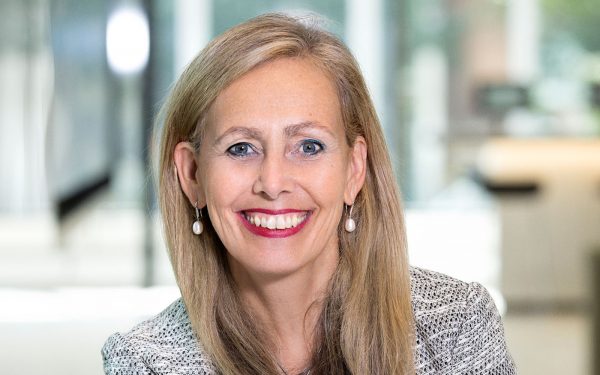DEVELOPMENT
January: Davos 2016: Can co-ops contribute to the 4th Industrial Revolution?
World leaders and business representatives met in Davos in January for the World Economic Forum. Delegates looked at how technological developments such as the sharing, collaborative economy create new notions of ownership. At the event, president of the International Co-operative Alliance, Monique Leroux, said co-operatives can contribute to the fourth revolution by helping to regulate work in the “gig economy”, an environment dominated by contracts between organisations and independent workers for short-term engagements.
July: Co-ops important to sustainable development says UN
The United Nations (UN) recognised the important contribution co-operatives could make to the implementation of its sustainable development agenda for 2030. Speaking on the International Day of Co-operatives on 2 July, UN secretary general Ban Ki-moon urged governments to create an enabling environment for co-operatives to thrive. He said: “Let us harness the power of co-operatives to achieve the Sustainable Development Goals and create a world of dignity and opportunity for all.”
July: Agnès Mathis appointed Cooperatives Europe director
Cooperatives Europe appointed Agnès Mathis as its new director, to work with the organisation’s members and lead the staff team. Ms Mathis, who has worked in the co-operative movement for more than 20 years, succeeded Klaus Niederländer, who had led the organisation since 2010.
August: Obama backs co-ops as key in fight for food security
US President Barack Obama signed into law the Global Food Security Act, which aims to help end global hunger, poverty and malnutrition. Co-operatives are mentioned in the act as key stakeholders engaged in efforts to advance global food security programs and objectives. “Development is not charity, it is one
of the smartest investments we can make in our shared future,” he said.
September: B20 final documents highlight the contribution of co-operatives
The B20 Summit in China concluded with the adoption of a set of policy recommendations that mention co-operatives. A business-oriented forum, the B20 Summit brings together business leaders from across the G20 countries – the world’s 20 leading economies. Throughout the year, representatives from global industrial and commercial enterprises, including co-operatives, had met to discuss policy recommendations for the annual meeting of the
G20 leaders. The purpose of B20 China was to identify a set of clear, actionable recommendations to drive global economic growth. Five taskforces focused on: financing growth; trade and investment; infrastructure; SME development; and employment. In a policy recommendation to the main B20 group in China, the employment task force said governments should encourage innovators to use the co-op model.
CO-OPERATIVES MAKING A DIFFERENCE
March: UN Commission looks at how co-ops can empower women
The United Nations’ Commission on the Status of Women hosted a high-level side event on 16 March (International Women’s Day) to discuss women’s economic empowerment in rural areas through co-operatives and micro enterprises. Gender equality and women’s empowerment is a key issue on the UN’s Sustainable Development Goals agenda.

August: Waste picker co-ops aim to help recycle 3,500 tonnes of waste at Rio 2016
For the first time in history, waste picker co-operatives are in charge of not only collecting, but also recycling the waste generated during the Olympic games. The initiative is the result of a partnership between the Rio 2016 organisers, Rio’s state government and the federal government, which have invested R$3m (£720,000) into the scheme. The programme, called Inclusive Recycling: Recyclers in Rio 2016, was launched on 29 July at the premises of Ecoponto co-operative in Rio de Janeiro. The project was operated under the umbrella of the Environment Ministry of Brazil.
October: International Summit of Co-operatives 2016
Between 11-13 October 2016, delegates from across the world gathered in Quebec for the third edition of the International Summit of Cooperatives, under the theme ‘Cooperatives: The Power to Act’. Keynote speakers included Jeremy Rifkin, Robert Reich and Joseph Stiglitz. Read more on page 11.
Q&A: Melina Morrison, Chief Executive of Australia’s Business Council of Co-operatives and Mutuals
![Melina Morrison hopes co-ops can provide an alternative to populist politics [photo: BCCM]](https://www.thenews.coop/wp-content/uploads/meli/a-/melina-morrison-600x399-1.jpg)
What were your highlights of 2016?
We have been fortunate to be awarded EU funding to study co-operatives in Europe, especially the innovations in different regions and sectors. It has been inspiring to learn about the power of different co-operatives in different countries – so I would have to say a highlight is the co-op sector itself, for its resilience, ingenuity, diversity and powerful drive to build a better world. In a time of uncertainty, reminding ourselves of the great variety and success of co-ops globally can make it seem there might be light at the end of the tunnel. But there have been lowlights this year. There have been some examples of co-ops losing their way and examples of co-ops under siege from demutualisers. These events have reminded us of the importance of the strongest governance but also the attention to the detail of the member value proposition so that every decision is always made in the interests of the member – so, in turn, the member remains and is loyal to the co-op, realising their interests are served through preserving the model. The lurch towards populism fuelled by people’s insecurity about the economy, jobs and the future, has also been a lowlight – on the flip side this is an opportunity for co-ops to reach people with an alternative, positive model of business that puts their needs before profit.
What are you most looking forward to next year?
In Australia, we have an unprecedented opportunity to galvanise political support for important legislative and regulatory changes to enable co-ops and mutuals to grow, thrive and compete in the Australian economy. We have had a federal senate inquiry into our sector and the committee found that there were 17 areas that needed reform – seeing the full implementation of these recommendations is the major focus of the BCCM in 2017. I’m not worrying for the sector – I’m ambitious for coops and mutuals to be the leading form of enterprise by 2020 and the model preferred by people. So let’s get on with it – together in co-operation.
Q&A: MONIQUE LEROUX, president, international co-operative alliance

What were your highlights of 2016?
2016 has been a year in which our movement has connected through co-operation, with members and with other co-operatives. We are particularly pleased that our policy strategy has resulted in an official acknowledgement of co-operatives by the UN, on the International Day of Co-operatives. While many organisations worldwide are declaring support for the UN’s Sustainable Development Goals, co-operatives are the first global economic group to engage in a concrete undertaking in support of sustainable development. A telltale sign that the added value of co-operatives resonates outside the movement is our new, historic financial agreement with the European Commission to support the development of co-operatives and mutuals globally.
What are you most looking forward to next year?
We shall build on the foundations we have laid out. We will further establish the COOP identity as a trademark and build our reputation as values-based businesses. At a high level, we will unite co-operatives and act as a basis for peace and growth. On an everyday level, we will encourage co-ops to connect and “do co-operative business”. The co-operative model has always been remarkably adaptable and innovative. The co-operative approach, cast against the backdrop of human values, is a reasoned and reasonable economic and social model, both engaged and engaging, imbued with a keen sense of social justice and resolutely turned to the future. We are studying new developments such as the sharing economy and platform co-ops to find out how we can contribute to these essential debates which impact in the long term democracy, worker rights, peace and economic growth.

